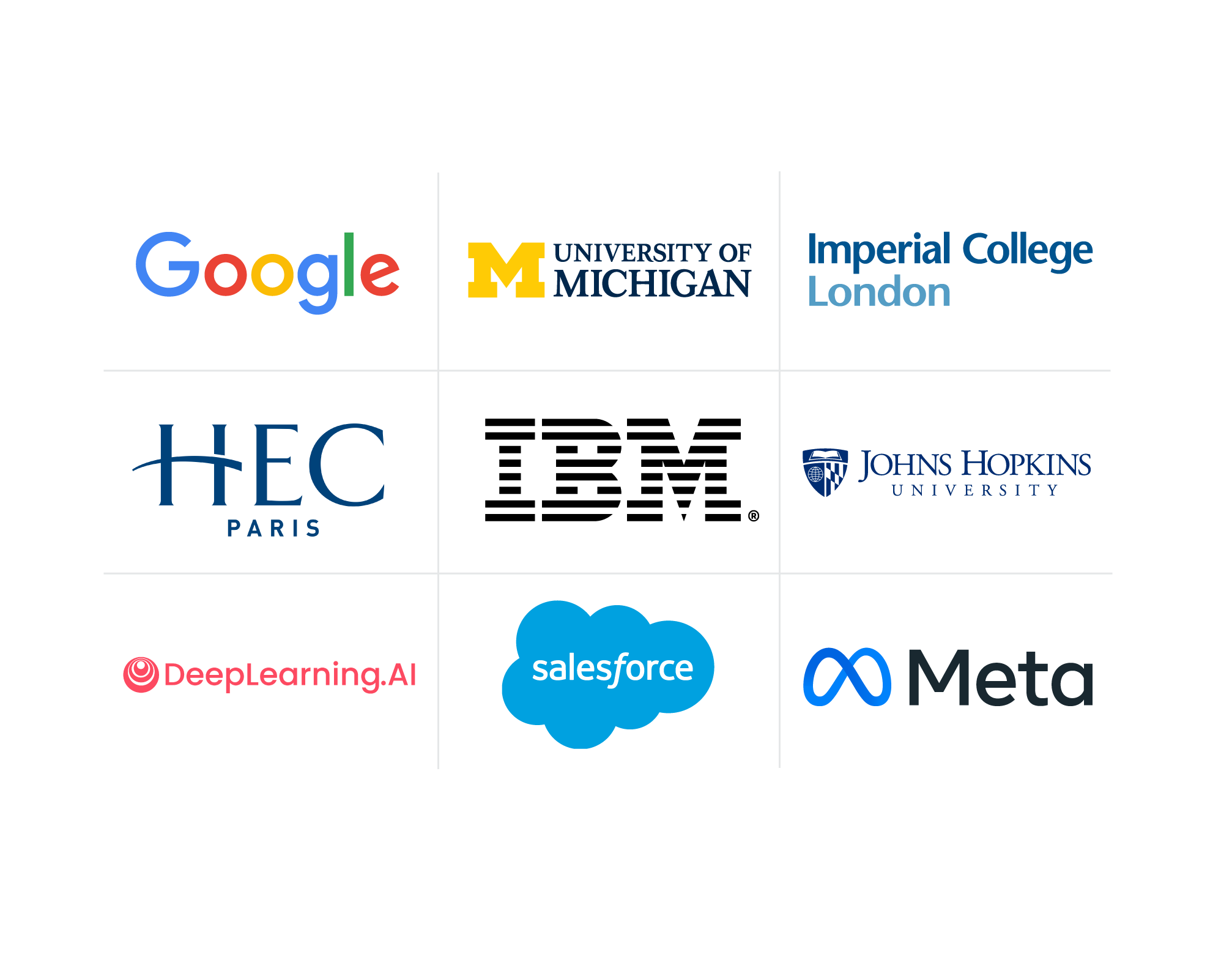Data Analytics in Higher Education
Explore data analytics in higher education, including the benefits of analytics for corporate learning, academic success, and administrative tasks, as well as other considerations such as ethical and data security challenges.

Data initially became popularized in higher education primarily for accountability purposes, but has since evolved to develop insights into the learner experience to improve learning outcomes through informed decision-making. This has enabled academic institutions to enhance their offerings and measure their progress.
However, using data analytics in education goes beyond academic institutions, reaching corporate settings to help your business implement targeted learning initiatives to fill skill gaps and improve job performance. Discover more about leveraging data for learner success and how it can benefit your organization.

A transformative approach in higher education
Data analytics within higher education can positively transform the learner’s experience and the institution's strategic operations. For the student, data can help highlight the most successful teaching methods and identify learners facing challenges who may need extra help to ensure they perform well. Identifying optimal learning methods can also contribute to employee corporate learning, where data analytics allows business leaders to uncover the most effective training methods.
Learning more about what teaching methods help learners absorb information is beneficial for learners as well as for instructors. Data analytics puts instructors in a position where they can do their jobs to the best of their ability. As a result, educational institutions get more out of their resources.
Another way data analytics helps higher education institutions get the most from their available resources is by looking at how funding is allocated so that the areas of focus offer strong returns. To keep up with industry changes, predictive analytics in higher education is an important area to focus on so that plans are in place in anticipation of what lies ahead.
Data analytics in higher education for learner success and engagement
You can look at data to determine student engagement using direct feedback from students to assess what strategies are or aren’t effective. Completing coursework, applying the skills, showing development in course objectives, and participating in class are also areas to monitor.
Learning management systems such as Canvas are valuable tools for assessing learner engagement. With Canvas, you can see who’s spending time on the material and who isn’t. With this data, you can develop a plan to improve engagement for learners instead of continuing with low engagement levels. This can also empower learners, enabling them to take control over their learning experiences as they can view their performance data and see their progress over time.
Creating personalized learning opportunities
A personalized approach to learning opportunities based on an individual's preferences and proficiencies can lead to positive outcomes, such as increased engagement, academic performance, and learner satisfaction. To implement personalized learning, utilize technology, interviews, and observations. Flexibility in learning approaches allows learners to discover the most effective way to acquire knowledge and work toward their goals.
Improving institutional efficiency with data analytics
Higher education institutions can implement data analytics to impact several key areas in their decision-making processes. While success is inherently crucial to learners, it directly highlights the quality of the education schools provide, making it possible to provide more effective learning experiences. By analyzing learner performance data, institutions can ensure their programs offer a quality product. You can also uncover insights about the effectiveness of teachers this way.
Data-driven decision-making for institutional planning
When preparing for the future, data analytics enables your institution to make financial decisions that optimally utilize resources and develop plans that lead to growth. This makes complex decision-making processes more efficient and cost-effective, saving valuable time and money. You can also be confident in your plan, knowing data informs it.
Empower your students and staff with industry-recognized skills
- Learn: Access job-aligned Professional Certificates from world-class leaders
- Integrate: Support faculty in embedding micro-credentials into existing courses and programs
- Apply: Provide students with faculty-coached, hands-on learning experiences that reinforce certificate skills
Implications for corporate learning
The benefits of data analytics go beyond data-driven decision-making in corporate settings. It’s also a valuable method for training and teaching employees to succeed. Leaders can use data insights to identify skills gaps and areas where staff members lack knowledge and make those areas a greater learning priority. Other valuable information includes discovering how employees like to learn to offer a more personalized approach.
Data security and ethical considerations in higher education analytics
Proper security measures are necessary in higher education, as this area experiences data breaches regularly. This can leave learners vulnerable to extortion and identity theft, and institutions vulnerable to Family Educational Rights and Privacy Act (FERPA) violations by failing to safeguard personal data. Federal law requires higher education institutions to have a policy detailing how they will protect information, and it needs to feature continuous developments to address technological and regulatory updates [1]. For example, Harvard has specific guidelines for data usage for generative AI (artificial intelligence) tools, with an information security and data privacy office ensuring compliance [2]. Other federal regulations that require consideration include the Health Insurance Portability and Accountability Act (HIPAA) and the Digital Millennium Copyright Act (DMCA) [2].
Getting started with Coursera
Data analytics plays an important role in higher education, offering learner experience benefits. This process for analyzing information can also benefit the institution because data can improve learner success and support data-driven decision-making within institutional planning.
Coursera for Campus empowers any university to offer students, faculty, and staff job-relevant, credit-ready* online education. With Coursera for Campus, you can promote learner employability by teaching in-demand skills for high-growth fields. You can help students master job-ready skills with Guided Projects, programming assignments, and in-course assessments—online, offline, and via mobile. Enable faculty to create projects, assessments, and courses tailored to learner needs with Coursera for Campus.
* Credit eligibility determined by your institution.
Article sources
U.S. Department of Education. "Data Security: K-12 and Higher Education, https://studentprivacy.ed.gov/data-security-k-12-and-higher-education." Accessed June 23, 2025.
This content has been made available for informational purposes only. Learners are advised to conduct additional research to ensure that courses and other credentials pursued meet their personal, professional, and financial goals.
